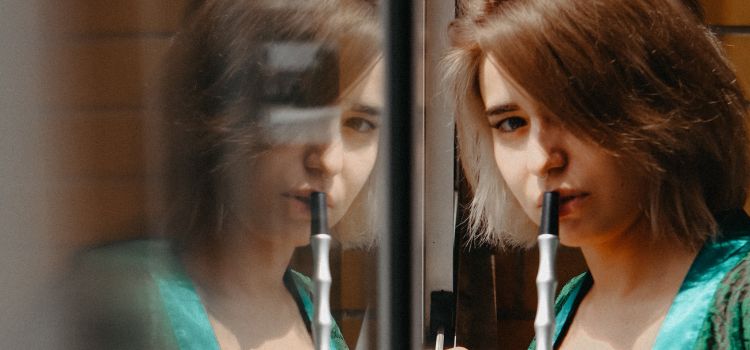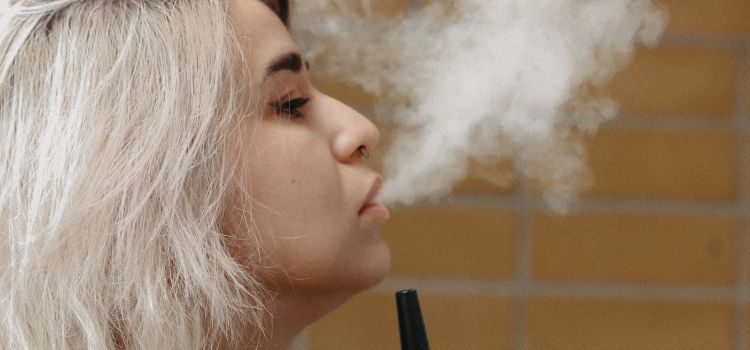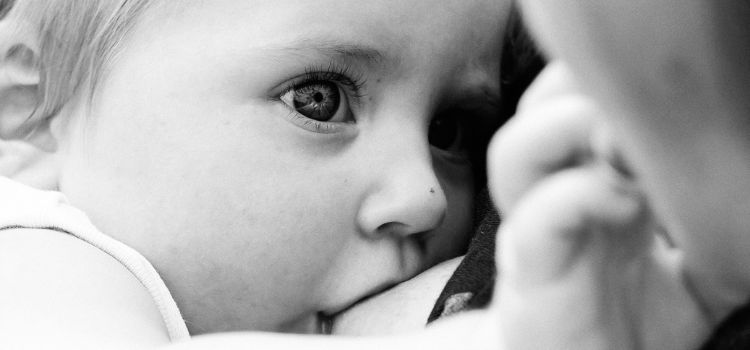No, it is not safe to smoke hookah while breastfeeding. The harmful substances in hookah smoke, including nicotine, can be passed on to your child through breast milk.

Refraining from smoking hookah is advisable to ensure the optimal protection and well-being of your baby.
Understanding The Impact Of Hookah Smoke On Breastfeeding Mom

Understanding the impact of hookah smoke on breastfeeding is crucial for new mothers. While it is advisable to refrain from smoking hookah while breastfeeding to ensure optimal protection for the child, waiting for a few hours before breastfeeding again is a possible solution.
Hookah smoking has gained popularity over the years, but it’s essential to understand the potential risks it can pose while breastfeeding. The smoke produced during a hookah session contains harmful chemicals and toxins that can affect breast milk composition and the nursing infant.
In this section, we will delve into the effects of hookah smoke on breast milk composition, the potential risks for the nursing infant, and how hookah smoke can affect milk supply.
Effects Of Hookah Smoke On Breast Milk Composition
Chemicals and toxins from hookah smoke can be transferred to breast milk, altering its composition. These substances include nicotine, carbon monoxide, heavy metals, and other harmful compounds.
Hookah smoke contains higher levels of carbon monoxide compared to cigarette smoke, which can decrease the oxygen-carrying capacity of blood and negatively impact the baby’s health. Nicotine, a highly addictive substance found in hookah smoke, can also be transferred to breast milk and affect the infant’s central nervous system.
Potential Risks For The Nursing Infant
Exposure to hookah smoke through breast milk can increase the risk of respiratory illnesses, such as asthma, bronchitis, and even sudden infant death syndrome (SIDS). Babies exposed to nicotine in breast milk may experience symptoms such as restlessness, irritability, difficulty in sleeping, and poor weight gain.
The chemicals present in hookah smoke can affect the baby’s developing immune system and increase the likelihood of infections.
How Hookah Smoke Can Affect Milk Supply
- Hookah smoking can have a negative impact on milk supply, potentially leading to low milk production. The chemicals in hookah smoke can interfere with the hormones responsible for milk production and let-down reflex.
- Smoking cigarettes or hookah can also cause issues with milk let-down, making it harder for the baby to effectively nurse and obtain enough breast milk.
- It is important to note that waiting three to four hours after smoking before breastfeeding again is recommended to reduce the transfer of harmful substances, although this might not always be feasible, especially in the early weeks when newborns need to eat more frequently.
Smoking hookah while breastfeeding can have significant implications for both the mother and the infant. The chemicals and toxins present in hookah smoke can alter the composition of breast milk, pose risks to the nursing infant, and potentially impact milk supply.
It is important for breastfeeding mothers to be aware of these potential risks and consider avoiding hookah smoking to prioritize the health and well-being of their baby.
Risks Associated With Smoking Hookah While Breastfeeding

The risks associated with smoking hookah while breastfeeding are significant. Harmful substances present in hookah smoke, including nicotine, can be passed onto the infant through breast milk.
To ensure optimal protection for the child, it is advisable to refrain from smoking hookah until breastfeeding is no longer occurring. Smoking hookah while breastfeeding can pose several risks to both the mother and the baby. It is important for breastfeeding mothers to be aware of these risks and make informed choices about their health and the health of their baby.
Lowered milk production and supply:
- Smoking hookah has been linked to a decrease in milk production and supply. The chemicals present in hookah smoke can interfere with the hormones responsible for milk production, leading to a decrease in the amount of milk a breastfeeding mother can produce.
- The reduction in milk supply can make it difficult for the baby to get enough nutrition, which can impact their growth and development.
Increased risk of respiratory issues in infants:
- Hookah smoke contains harmful chemicals and toxins that can be inhaled by the baby during breastfeeding. These chemicals can irritate the baby’s delicate respiratory system, leading to an increased risk of respiratory issues such as coughing, wheezing, and bronchitis.
- Babies exposed to hookah smoke are also more susceptible to developing allergies and asthma later in life.
Impact on the baby’s growth and development:
- The chemicals and toxins present in hookah smoke can have a negative impact on the baby’s growth and development. These substances can cross into the breast milk and affect the baby’s developing organs, nervous system, and immune system.
- Exposure to hookah smoke during breastfeeding has been associated with poor weight gain and delayed developmental milestones in infants.
Safety Guidelines And Recommendations For Breastfeeding Mothers

Can you smoke hookah while breastfeeding? It is advisable to refrain from smoking hookah until the child is no longer breastfed to ensure optimal protection. The harmful substances in hookah can be passed on to your child through breast milk.
Alternatives To Smoking Hookah While Breastfeeding
- Choose a different activity: Instead of smoking hookah, consider engaging in alternative activities that are safe for breastfeeding mothers, such as reading a book, listening to music, or taking a relaxing bath.
- Seek support: If you find it challenging to quit smoking hookah, reach out to support groups or speak to a healthcare professional who can provide guidance and resources to help you quit.
- Try nicotine replacement therapy: Nicotine replacement products, such as nicotine gum or patches, may be an option to help manage nicotine cravings while breastfeeding. However, it’s essential to consult with a healthcare provider before using any nicotine replacement therapy.
Steps To Minimize The Impact Of Hookah Smoke On Breastfeeding
Limit exposure: If you choose to smoke hookah while breastfeeding, it is essential to minimize your baby’s exposure to secondhand smoke. Follow these steps:
- Smoke outside or in a well-ventilated area away from your baby.
- Change your clothing and wash your hands and face before breastfeeding.
- Consider using a designated smoking garment, such as a robe or jacket, to reduce exposure.
Time your sessions: Plan your hookah smoking sessions strategically to minimize the impact on breastfeeding. Consider the following:
- Smoke after breastfeeding to allow enough time for nicotine and other harmful substances to clear your system before your next breastfeeding session.
- Pump and store breast milk before smoking to ensure your baby has a supply during the waiting period.
- Stay hydrated: Smoking hookah can lead to dehydration, which can affect your breastfeeding abilities. Make sure to drink plenty of water or other fluids to maintain your milk supply and keep yourself hydrated.
Creating A Smoke-Free Environment For Both Mother And Baby
- Avoid smoking indoors: Smoking indoors, even away from your baby, can still expose them to harmful toxins. It’s best to smoke outside or in well-ventilated areas to create a smoke-free environment for both of you.
- Educate family and friends: Inform your family and friends about the risks of secondhand smoke, and ask them to refrain from smoking around you and your baby. Create a supportive network that understands and respects your decision to create a smoke-free environment for your child.
- Implement smoking cessation strategies: If you are struggling to quit smoking hookah, consider implementing smoking cessation strategies such as counseling, support groups, or nicotine replacement therapies. These strategies can help you quit smoking and protect your baby’s health.
Remember, the best option for your baby’s health is to avoid smoking hookah altogether while breastfeeding. If you need further guidance or support, consult with a healthcare professional who can provide personalized advice based on your specific situation.
Frequently Asked Questions
How Long After Smoking Shisha Can I Breastfeed?
It is advisable to wait at least three to four hours after smoking shisha before breastfeeding. However, in some cases, waiting this long may not be possible, especially in the early weeks when a newborn needs to eat more frequently.
Does Hookah Smoke Affect Babies?
Hookah smoke can affect babies as the harmful substances ingested through hookah can be passed through breast milk. It is advisable to refrain from smoking hookah while breastfeeding to ensure optimal protection for the child.
Can You Breastfeed After Sheesha?
Yes, you can breastfeed after smoking Sheesha. It is recommended to wait a few hours before breastfeeding again, but it is not always possible.
What Happens If I Smoke Once While Breastfeeding?
Smoking once while breastfeeding can lead to low milk supply, colic, and milk let-down issues. However, it is still advised to breastfeed as your milk can protect your baby from breathing problems, SIDS, and poor weight gain. It’s best to wait as much time as possible between smoking and breastfeeding.
Conclusion
Smoking hookah while breastfeeding is not recommended. The harmful substances present in hookah smoke, including nicotine, can be passed on to the child through breast milk. It is advisable to refrain from smoking hookah until the child is no longer breastfed to ensure optimal protection.
Although breastfeeding provides numerous health benefits and breast milk remains the recommended food for infants, smoking can cause low milk supply, colic, and milk let-down issues.
If a mother continues to smoke, it is still important to breastfeed as it can protect the baby from breathing problems, Sudden Infant Death Syndrome (SIDS), and poor weight gain.
However, it is crucial to wait as much time as possible between smoking and breastfeeding to minimize the exposure of harmful substances to the child. Quitting smoking altogether is the best option for the well-being of both the mother and the child.
Leave a Reply